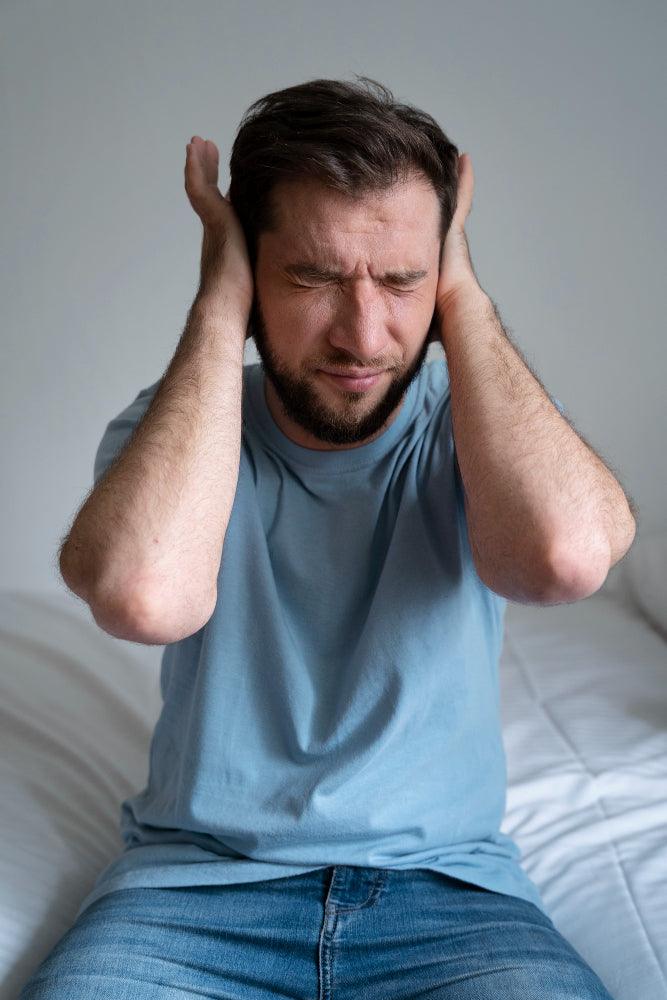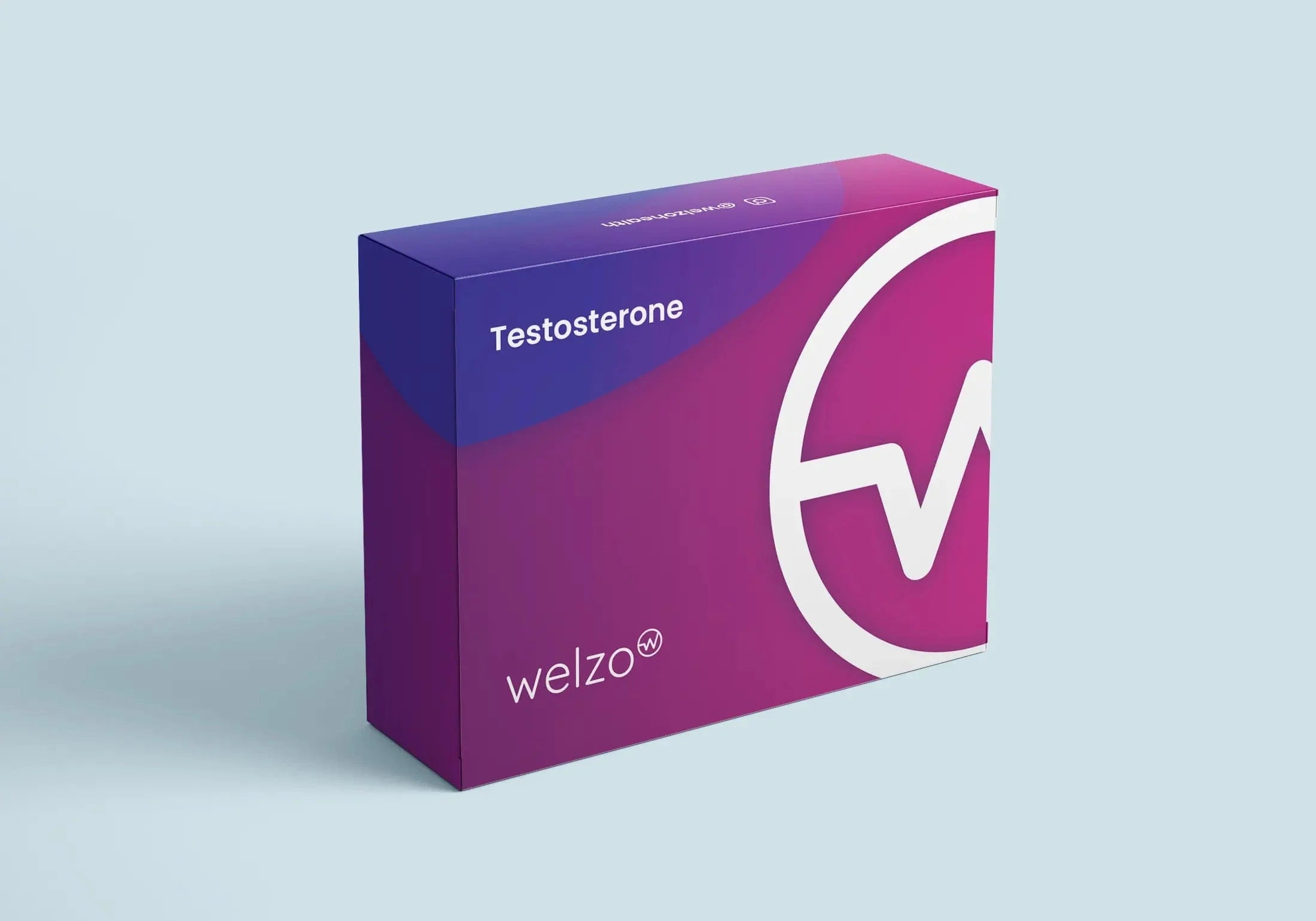Stress and Testosterone: Scientific Review


The connection between stress and testosterone levels is more intricate than one might assume. These two physiological aspects intertwine in various ways, impacting the overall health of an individual. In the past few years, extensive research has shown that increased stress levels can potentially lead to decreased testosterone levels. To understand this correlation better, it's vital to unpack the underlying mechanisms that link these two.
When we experience stress, our bodies react by releasing a hormone known as cortisol. "Cortisol works in a 'negative feedback loop' with testosterone, where high levels of cortisol suppress the production and activity of testosterone", according to Dr. Alice Robinson, a senior endocrinologist. This means that persistent high stress levels could potentially lead to chronically low testosterone levels.
Chronic stress, more so than sporadic episodes of stress, can greatly impact testosterone production in both males and females. "The body responds to chronic stress by maintaining high levels of cortisol. Over time, this persistent elevation of cortisol disrupts the balance of hormones, eventually leading to decreased testosterone production", says Dr. Oliver Baker, a renowned expert on hormonal health from the University of Oxford.
Stress can disrupt the entire endocrine system, which is responsible for hormone regulation. When stressed, the body focuses on survival; thus, energy is diverted from less critical bodily functions such as reproductive health. As a result, hormones like testosterone take a backseat. This interruption, if prolonged, can lead to long-term health issues, including depression, fatigue, and sexual health problems, notes Dr. Robinson.
It is crucial to understand that the influence of stress on testosterone levels isn't confined to a specific age group. Adolescents, adults, and seniors all experience the effects of stress, albeit differently.
Adolescents are particularly vulnerable to the impacts of stress due to the ongoing hormonal changes that occur during puberty. A 2021 study published in the 'Journal of Endocrinology' revealed a significant negative correlation between stress and testosterone levels in adolescent males. "Adolescence is a crucial period for the maturation of the endocrine system. Chronic stress during this time can disrupt hormonal balance, including testosterone levels, which could potentially impact growth and development," explains Dr. Baker.
Adults are no exception to the influence of stress on testosterone. Given the numerous responsibilities adults face, they're likely to experience chronic stress, leading to reduced testosterone levels. A 2020 study published in 'The British Journal of Psychiatry' found that adults with chronic stress had 20% lower testosterone levels than those without.
Senior citizens may be more susceptible to changes in testosterone levels due to stress. With age, testosterone production naturally decreases, and this process can be further exacerbated by chronic stress. A study published in 'The Gerontologist' in 2022 found that seniors with high-stress levels had markedly lower testosterone levels.

Buy Testosterone Blood test online here.
There's a silver lining to the relationship between stress and testosterone: managing stress can help normalise testosterone levels. Let's delve into how this works.
Research indicates that effective stress management can indeed help in normalising testosterone levels. "By managing our stress levels, we can regulate cortisol production, which in turn can restore balance to our hormone levels, including testosterone", says Dr. Robinson.
Numerous techniques can reduce stress and maintain hormonal balance. These include mindfulness practices, regular exercise, a balanced diet, and adequate sleep. "All of these methods have been proven to reduce cortisol levels and, in turn, increase testosterone levels," says Dr. Baker.
Relaxation techniques, like meditation and yoga, can have a significant impact on the body's production of testosterone. They reduce the body's stress response, thereby decreasing cortisol production and allowing for normal hormone regulation. Lower stress means lower cortisol, and lower cortisol allows for a healthier balance of hormones, including testosterone.
Understanding stress and testosterone levels is an evolving field with ongoing research and medical studies providing further insights. This section delves into recent scientific findings, contributions from animal models, and any existing controversies.
Recent scientific studies reveal a complex connection between stress and testosterone levels. A ground-breaking research paper published in 'Nature Medicine' in 2022 concluded that chronic stress affects both the central and peripheral systems, suppressing the testosterone production. "These studies showcase how chronic stress leads to a sustained increase in cortisol, subsequently reducing testosterone. The effects are profound and can vary based on age, gender, and overall health", summarized by Dr. Oliver Baker, an expert on hormonal health.
Animal models have been instrumental in deciphering the mechanisms linking stress and testosterone. For example, a 2021 study on rodents conducted by researchers at the University of Edinburgh provided insights into the hypothalamic-pituitary-gonadal (HPG) axis, a critical part of hormone regulation. "These animal studies offer a controlled environment to study the immediate and long-term effects of stress on testosterone, which has been instrumental in advancing our understanding of the underlying biological processes," notes Dr. Baker.
While there is a broad consensus on the connection between stress and testosterone, some contradictory findings and controversies do exist. Some studies suggest that acute stress might actually lead to a temporary increase in testosterone in certain individuals. "These findings highlight the complex nature of hormone regulation and stress response, suggesting that individual differences and other underlying factors need to be considered," says Dr. Alice Robinson, of Cambridge University Hospital.
The connection between stress and testosterone levels carries significant clinical implications. Understanding this relationship informs treatment and preventive strategies that healthcare professionals can employ.
Healthcare professionals leverage the knowledge about the stress-testosterone connection to create individualised treatment plans for patients. Understanding this connection helps clinicians in diagnosing underlying hormonal imbalances and devising targeted therapies like stress management and hormone replacement as needed.
Available treatments to balance testosterone affected by stress range from lifestyle changes to medical interventions. "These include cognitive-behavioral therapy, pharmaceutical options like hormone replacement therapy, and a focus on overall well-being through exercise and nutrition," highlights Dr. Baker.
Preventive measures like mindfulness practices, regular exercise, and a balanced diet can mitigate the impact of stress on testosterone. "These strategies not only prevent high cortisol levels but also promote overall hormonal balance, thereby protecting testosterone levels," says Dr. Robinson.
The following section covers frequently asked questions about stress and testosterone, providing clear, concise answers to common queries.
Stress can affect testosterone levels rather quickly. Acute stress might cause immediate changes, while chronic stress leads to more sustained reductions. "The effects can be observed within hours to days, depending on the nature and intensity of the stress," explains Dr. Baker.
Yes, the effect of stress on testosterone is often reversible. "Managing stress effectively can restore hormonal balance over time," assures Dr. Robinson.
Symptoms of low testosterone caused by stress include fatigue, mood changes, reduced libido, and difficulty concentrating. "These symptoms are often indicative of other underlying health issues, so proper medical evaluation is essential", elaborates Dr. Baker.
Lifestyle changes can significantly reduce the impact of stress on testosterone. "Incorporating relaxation techniques, healthy eating, and regular exercise can make a noticeable difference."
Long-term health consequences of stress-induced testosterone imbalance may include cardiovascular issues, obesity, mental health problems, and sexual dysfunction. "Chronic imbalances can lead to serious health conditions, underscoring the importance of early detection and management", warns Dr. Baker.
Stress-related low testosterone is diagnosed through a combination of patient history, physical examination, blood tests, and an assessment of stress levels. "A comprehensive approach ensures accurate diagnosis and enables tailored treatment," concludes Dr. Robinson.
Gender plays a significant role in the relationship between stress and testosterone levels. The way that stress-induced testosterone alteration affects men and women is different, and understanding these distinctions is vital for effective treatment.
Stress-induced testosterone alteration has varying effects on men and women due to differences in hormonal balance and physiology. In men, low testosterone may manifest more prominently in sexual dysfunction, whereas women may experience menstrual irregularities. Men rely more heavily on testosterone for sexual function and muscle development, while in women, testosterone plays a subtler role, often intertwined with other hormones like estrogen and progesterone.
Specific symptoms of low testosterone in men include reduced libido, erectile dysfunction, and loss of muscle mass. In women, the symptoms might include menstrual irregularities, mood swings, and reduced energy levels. Gender-specific concerns include potential impacts on fertility and sexual health for both sexes, with additional concerns for women regarding menstrual and overall hormonal balance.
Yes, gender-specific treatments and approaches are essential when dealing with stress-induced testosterone alteration. Men might benefit more from direct testosterone replacement therapy, while women might require a more nuanced approach involving balancing multiple hormones. "Treatments must be individualised, taking into account the distinct hormonal landscape of each gender," emphasizes Dr. Robinson.
Cultural attitudes and societal pressures can significantly influence stress levels, and subsequently, testosterone levels. This multifaceted connection necessitates an understanding of the broader societal context.
Cultural attitudes towards stress vary widely and can have tangible effects on testosterone levels. In societies where high stress is seen as a sign of dedication or success, individuals may face elevated stress levels, leading to reduced testosterone. "The cultural acceptance or rejection of stress plays a crucial role in shaping stress response and, consequently, hormonal balance", notes Dr. Baker.
Societal pressures such as work demands, financial stress, and societal expectations regarding gender roles might contribute to stress and alter testosterone levels. "These pressures act as chronic stressors, affecting both mental and physical health, including hormone regulation," says Dr. Robinson.
Yes, population-specific studies have examined how different cultural contexts affect stress and testosterone. Research conducted in various countries, including a 2019 study focusing on Japanese businessmen, has provided insights into how cultural norms and societal expectations impact hormonal balance. "These studies underscore the importance of considering cultural variables when addressing stress and hormonal health", highlights Dr. Baker.










Plus get the inside scoop on our latest content and updates in our monthly newsletter.